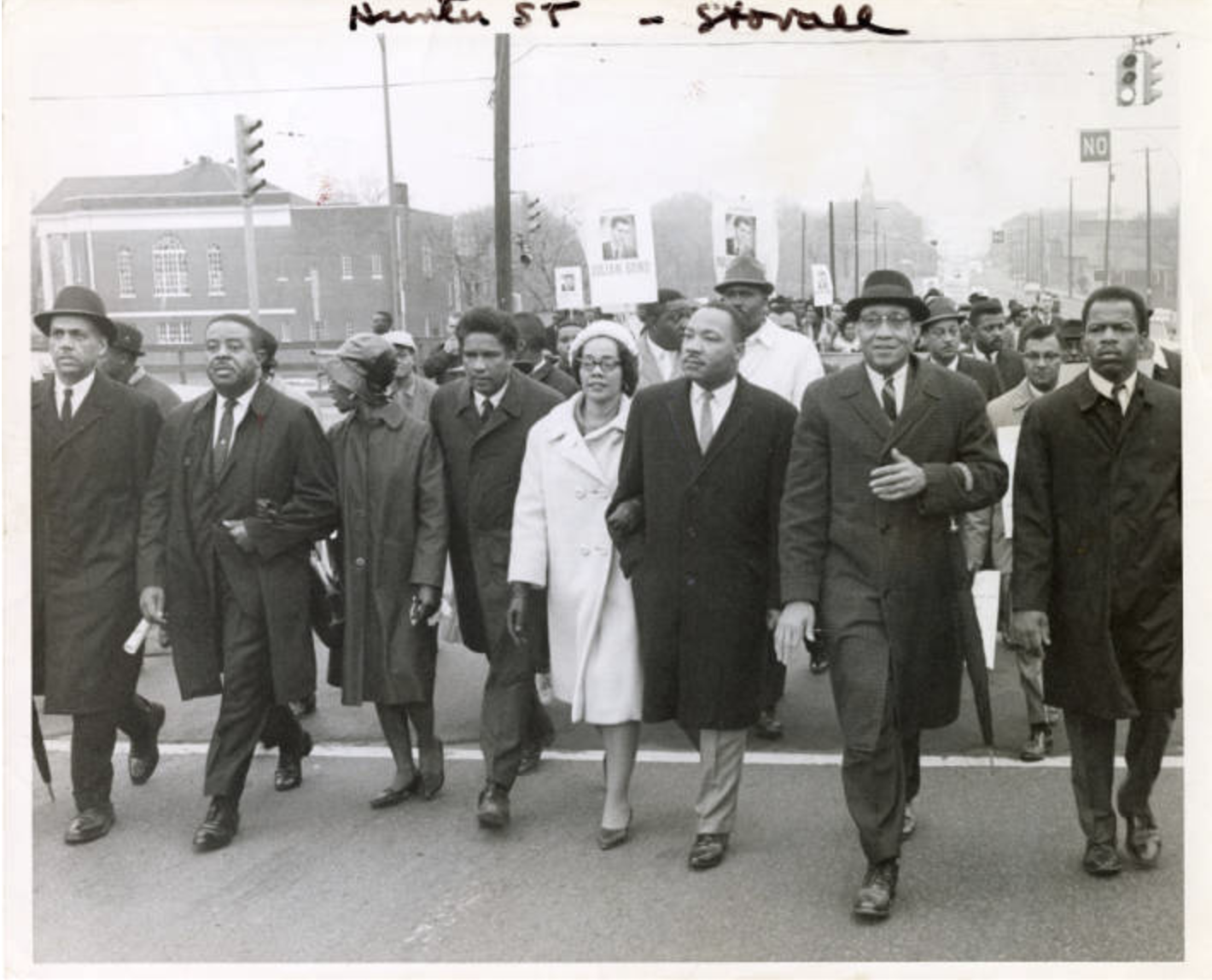About Us
The Martin Luther King Jr. Corridor emerged as a community for Black Atlantans in the 1920s during an era of segregation, becoming a pillar of courage and entrepreneurship. Extraordinary individuals like Austin T. Walden fought for justice in courtrooms, while Paschal's Restaurant served as a sacred meeting ground for civil rights leaders. Landmark institutions like the Harris Hospital and Citizens Trust Bank stood as powerful symbols of Black achievement, and pioneering businesses like the Atlanta Inquirer gave voice to a community demanding to be heard. Civil rights leaders strategized over meals, lawyers fought systemic injustices, and entrepreneurs built institutions that would reshape Atlanta's future. People lived, worked, raised families, and contributed to the growth of this city - their strength of community became part of Atlanta’s identity.
The Martin Luther King Jr. Corridor represents a significant part of our shared past and serves to inform future generations of these stories. It can only continue doing so if what remains is preserved and its integrity can be maintained. The MLK Main Street District will ensure that not only does the past remain present but can once again flourish. This Main Street will be unparalleled - providing economic growth while establishing a profound legacy that demonstrates how the people who made this community not only mattered but made it better for all of us.
"There comes a time when one must take a position that is neither safe, nor politic, nor popular, but he must take it because conscience tells him it is right."
-Martin Luther King Jr., A Testament of Hope: The Essential Writings and Speeches

Image Copyright Atlanta Journal-Constitution. Courtesy of Special Collections and Archives, Georgia State University Library.